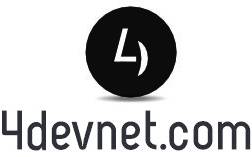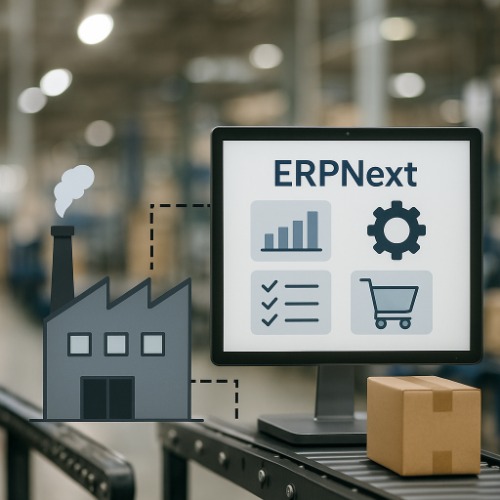ERPNext for Manufacturers: From Factory Floor to Fulfilment.
Introduction: Embracing Digital Transformation in Manufacturing
In today’s competitive industrial landscape, manufacturers are expected to deliver high-quality products faster, more efficiently, and at lower costs. However, achieving this requires more than just skilled labour and modern machinery. It demands smart, data-driven systems that provide end-to-end visibility, automate key operations, and integrate the entire value chain. This is where ERPNext, a comprehensive open-source ERP platform, offers immense value.
ERPNext helps manufacturers manage and synchronize production and supply chain operations through a single unified platform. By automating workflows and providing real-time insights, ERPNext plays a crucial role in improving operational performance, reducing waste, and enhancing customer satisfaction.
Key Challenges in Manufacturing and Supply Chain Management :
Before exploring ERPNext’s capabilities, it’s essential to understand the common challenges faced by manufacturers:
- Lack of integration between departments.
- Inaccurate or delayed inventory and procurement data.
- Inefficient production scheduling.
- Limited visibility into supplier performance.
- Inconsistent quality control and traceability.
- High operational and maintenance costs.
Addressing these issues requires a centralized and intelligent ERP system that aligns every aspect of the production life cycle and supply chain network.
What is ERPNext?
ERPNext is a modern, open-source enterprise resource planning system built on the Frappe framework. Designed to support small and mid-sized enterprises (SMEs), it offers a modular architecture covering manufacturing, inventory, procurement, sales, accounting, HR, and more. The system is highly customizable, scalable, and accessible via the cloud, making it ideal for organizations looking to automate and integrate their operations without expensive licensing costs.
Enhancing Manufacturing Operations with ERPNext :
ERPNext streamlines the manufacturing process by integrating planning, execution, quality control, and reporting—all in one platform. Here’s how:
1. Intelligent Production Planning :
ERPNext provides tools for effective production planning that align demand forecasts with available capacity and inventory:
- Dynamic work order generation.
- Resource scheduling and capacity management.
- Multi-level bill of materials (BOM) support.
- Real-time material requirement planning (MRP).
- Workflow-based production approvals.
Impact: Minimized downtime, improved resource utilization, and timely fulfilment of production targets.
2. Streamlined Shop Floor Management :
The platform enables detailed tracking and control of shop floor activities:
- Job card issuance with real-time status updates.
- Labor and machine hour tracking.
- Downtime logging and analysis.
- Quality inspections at every production stage.
- Integration with IoT devices or barcode systems.
Impact: Better operational visibility, fewer delays, and improved production accountability.
3. Robust Quality Assurance :
ERPNext helps maintain product quality through automated and configurable quality checks:
- Quality inspection templates and checklists.
- Compliance tracking and documentation.
- Rejection and rework management.
- Root cause analysis and corrective actions.
Impact: Enhanced product consistency, reduced defect rates, and improved customer trust.
Optimizing Supply Chain with ERPNext :
In addition to production, ERPNext strengthens the entire supply chain by enabling real-time coordination between procurement, inventory, and logistics.
1. Advanced Inventory Management :
ERPNext supports multi-location inventory management with real-time visibility:
- Automated stock adjustments and reordering.
- Batch and serial number tracking.
- Expiry, shelf life, and barcode integration.
- Stock transfers and valuation reporting.
Impact: Reduced inventory carrying costs, fewer stockouts, and accurate demand planning.
2. Efficient Procurement Processes :
The platform streamlines purchasing activities by connecting vendor management with production requirements:
- Supplier quotation and comparison workflows.
- Auto-generation of purchase orders based on material requests.
- Lead time tracking and cost control.
- Vendor rating and performance analysis.
Impact: Shorter procurement cycles, cost-effective sourcing, and better supplier collaboration.
3. Integrated Logistics and Fulfilment :
ERPNext brings transparency to the distribution and delivery process:
- Delivery scheduling and shipment tracking.
- Packing slip and invoice automation.
- Integration with logistics partners or carriers.
- Return and refund management workflows.
Impact: On-time deliveries, lower logistics errors, and improved customer service levels.
Benefits of ERPNext for Manufacturing and Supply Chain Operations :
When deployed effectively, ERPNext becomes a strategic tool that delivers measurable business value:
- Operational Efficiency: Automation eliminates manual bottlenecks and ensures consistency across departments.
- Cost Reduction: Real-time insights and accurate forecasts help optimize material usage and reduce overheads.
- Informed Decision-Making: Integrated analytics and dashboards enable quick, data-backed decisions.
- Scalability: ERPNext grows with your business, allowing seamless addition of new locations, users, or processes.
- Regulatory Compliance: Built-in documentation, traceability, and audit trails support industry standards and reporting.
Real-World Impact: A Manufacturing Case Example
A mid-sized automotive components manufacturer implemented ERPNext to unify its fragmented operations. Within the first year, the company experienced:
- 25% reduction in raw material wastage.
- 35% faster order processing time.
- 20% improvement in on-time delivery rates.
- Full traceability of production and inventory data.
These results enabled the business to secure larger contracts and significantly improve its bottom line.
Getting Started with ERPNext in Manufacturing :
To implement ERPNext effectively, manufacturers should follow a strategic approach:
- Assess Current Processes: Identify inefficiencies and key integration gaps.
- Define Objectives: Set clear KPIs related to cost, time, and quality.
- Customize ERP Modules: Tailor manufacturing, inventory, and purchase modules to your workflow.
- Train Users: Conduct comprehensive training to ensure adoption and proper usage.
- Monitor & Improve: Continuously analyze performance metrics and refine processes as needed.
Conclusion: Building a Future-Ready Manufacturing Enterprise
The future of manufacturing belongs to agile, intelligent, and integrated businesses. ERPNext serves as a catalyst for digital transformation, helping organizations not only automate day-to-day processes but also gain the flexibility and control needed to thrive in a volatile market. From production planning to last-mile delivery, ERPNext ensures that every link in your manufacturing and supply chain is optimized for efficiency and success.
By adopting ERPNext, manufacturers position themselves to innovate faster, operate smarter, and grow stronger—all while delivering value to customers with precision and reliability.


